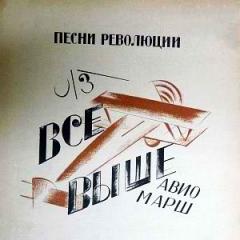Who said "the die is cast"? The die is cast Phrases with similar meaning.
Jump over Rubikon (The die is cast)(meaning) - to commit a decisive act, to take an irrevocable step (Explanatory Dictionary, 1935-1940).
"The die is cast" in Latin - Alea iacta est (Alea akta est).
Rubicon- the river separating Ancient Rome and Gaul. The phrase to cross the Rubicon is related to the following story:
The famous Roman commander Gaius Julius Caesar, having won a number of brilliant victories, was drawn into a civil war, where his opponent was Pompey, with a huge Roman army. Gaius Julius at that time was the governor of Gaul and his army was stationed in this province. According to the law, no one could enter the territory of the Roman state with an army. Accordingly, the very transition of Caesar with the army of the border of Gaul with Rome, which passed along Rubicon River(in Latin - "Red River"), was considered a state crime, for which the death penalty was established.
Upon learning of the persecution against Julius' supporters in Rome, Caesar decided to act decisively. On the night of January 10-11, 49 BC. Caesar with only one legion (XIII "Doubles" legion, Legio XIII Gemina lat.) Crossed the Rubicon. He violated this prohibition with the historic exclamation: "The die is cast!" (Alea iacta est - lat.). Caesar managed to defeat Pompey, conquer Rome and win the confidence of the Senate and the entire Roman people. After these events, Gaius Julius Caesar became the sole ruler in the Roman state. Many historians believe that it was Gaius Julius Caesar who laid a solid foundation for the power of the Roman Empire for the next 500 years.
Since " Cross the Rubicon”Means to make an important, dangerous and irrevocable decision, to commit an act that can no longer be canceled.
These events are described by Plutarch in 110 (Plutarch's Lives: Julius Caesar (c. A.d. 110)).
The expression is listed in the American Heritage Dictionary of Idioms by Christine Ammer, 1992 - "cross the Rubicon". It is stated that it has been used in English since the 1600s.
Ancient Roman historian Suetonius Guy Tranquill(c. 75 - 160 AD) in his book "Lives of the Twelve Caesars" describes these events:
"And so, when the news arrived that the intervention of the tribunes had not been successful, and that they themselves had to leave Rome, Caesar immediately moved the cohorts forward; and in order not to arouse suspicion, he was present for sight at popular shows, and discussed the plan of the gladiatorial school, which he was going to build, and arranged, as usual, a crowded dinner.But when the sun went down, he with a few companions, in a cart pulled by mules from a nearby mill, secretly set off. at dawn, finding a guide, on foot, along narrow paths, he finally came out on the right path. He overtook the cohort near the Rubicon River, the border of his province. Here he hesitated and, wondering what step he would dare, said, turning to his companions: "More it's not too late to return; but it is worth crossing this bridge, and weapons will decide everything. "
He was still hesitating when suddenly such a vision appeared to him. Suddenly, an unknown man of wondrous growth and beauty appeared nearby: he was sitting and playing the pipe. Not only shepherds came running to these sounds, but also many soldiers from their posts, among them were trumpeters. And now this man suddenly tore out a pipe from one of them, rushed into the river and, with a deafening sound of a battle signal, swam to the opposite bank. "Forward," Caesar exclaimed then, "forward, where are the banners of the gods and the injustice of our opponents calling us! The die is thrown."
So he transferred the troops; and then, leading to a general meeting of the exiled tribunes who had fled to him, he tearfully, tearing his clothes on his chest, began to beg the soldiers for loyalty. They even say that he promised everyone an equestrian state, but this is a misunderstanding. The fact is that, calling out to the soldiers, he often pointed to his left finger, assuring that he was ready to give even his ring to reward the defenders of his honor; and the distant rows, for which it was easier to see than to hear the speaker, took the imaginary signs for words, and hence the rumor began that he had promised them riders' rings and four hundred thousand sesterces.
His further actions, briefly and in order, were as follows. He entered Picenus, Umbria, Etruria; Lucius Domitius, illegally appointed his successor and occupying Corfinius, he forced to surrender and released; then along the coast of the Upper Sea, he moved to Brundisium, where the consuls and Pompey fled, in a hurry to cross the sea. After unsuccessful attempts to prevent them from sailing by any means, he turned to Rome. Turning here to the senators with a speech on the state of the state, he went against the strongest troops of Pompey, who were in Spain under the command of three legates: Mark Petreus, Lucius Afranius and Mark Varro; before leaving, he told his friends that now he was going to the army without a commander, and then he would return to the commander without an army. And although he was delayed both by the siege of Massilia, which closed the gates in his way, and by the extreme lack of food, he soon subjugated everything. "
Phrases with similar meaning:
Examples of
Stephen King
“Whoever has found it, takes it for himself. Mr. Mercedes 2 (FINDERS KEEPERS), 2015, translation into Russian by V. Weber, 2015:
"When Pete slips his cell phone into his trousers pocket, a Latin phrase that he learned in ninth grade jumps out of his memory. It is intimidating in any language, but ideally suited to his current situation.
Alea iacta est.
Die is cast."
The Green Mile (1996), translated by Victor Weber, Dmitry Weber, Part 5, Ch. one:
"We came to Rubicon, having crossed which, they could no longer turn back.
Only me this Rubicon passed it long ago. "
Catherine Ryan Hyde (born 1955)
"Don't let go" (2010, translated from English 2015) - about the decision to take the daughter away from the drug addict's mother:
"Rubicon crossed"
"Oh, how I would like to see the famous Khitrov market and these people who have passed "Rubicon of life"."
“Now I announced to my father that I was leaving for the rehearsal,” she began, coming up to me, “and he shouted that he was depriving me of my blessing, and even almost hit me. Imagine, I don’t know my role,” she said, looking into notebook. - I will certainly go astray. So, die is cast- she went on in great excitement. - Die is cast..."
Die is cast
Die is cast
Translation from Latin: Aleajacta est (alea yakta est).
The words of the future Roman emperor (and then only the commander who conquered Gaul) Gaius Julius Caesar (100-44 BC), which he uttered when crossing the Rubicon River. According to the Roman historian Svetonius ("The Life of the Twelve Caesars"), Caesar said: "Forward, where he calls
us the sign of the gods and the injustice of the adversaries. Let the lot be cast. "
According to the ancient Greek historian Plutarch (Comparative Biographies), Caesar pronounced these words in Greek (which was a sign of good manners among the Romans), as a quote from the comedy of the famous ancient Greek playwright Menander (c. 343-291 BC): “ Let the lot be cast. "
Allegorically: the decision has been made irrevocably, there is no going back.
Encyclopedic Dictionary of winged words and expressions. - M .: "Lokid-Press"... Vadim Serov. 2003.
Die is cast
Julius Caesar's exclamation when crossing the Rubicon ( cm.). Used in the meaning: the final decision.
Dictionary of winged words... Plutex. 2004.
Synonyms:
See what "The die is cast" in other dictionaries:
Cm … Synonym dictionary
Resolved Wed. The die is thrown, he said in the hallway, there is no return. Tomorrow I'm ordering tickets to France ... and we're leaving in a week. Wed I.N. Gnedich. To calm the nerves. 5. Wed Die is cast; I am leaving this city forever ... Dostoevsky. Demons. 3, ... ... Michelson's Big Explanatory Phraseological Dictionary
Alea iacta est (Latin for "the die is cast") is a phrase believed to have been uttered by Julius Caesar when crossing the border river Rubicon in the vicinity of Rome. It is believed that Caesar, when crossing the Rubicon, expressed this phrase not in Latin, but in ... ... Wikipedia
Die is cast- Express. High. The final decision has been made; a decisive start was made in any business, enterprise, etc. Shcherbachev saw that only two divisions more or less approached the targets of the attack, and the rest were one or two miles away from them ... Phraseological dictionary of the Russian literary language
The lot is thrown (decided). Wed The lot was thrown said he was already in the hallway, no return. Tomorrow I am ordering tickets for France ... and in a week dem. I. N. Gndich. For soothing nerves. 5. Wed The lot is thrown; I am leaving this city for ever ... Michelson's Big Explanatory and Phraseological Dictionary (original spelling)
Book. A final decision was made, a decisive step was taken in what l. business, enterprise. FSRYa, 159; BTS, 98, 308; SHZF 2001, 76; BMS 1998, 191; Mokienko 1989, 151 152 ... A large dictionary of Russian sayings
Die is cast- wings. sl. The exclamation of Julius Caesar when crossing the Rubicon (see Crossing the Rubicon). Used in the sense: the final decision ... Universal Additional Practical Explanatory Dictionary of I. Mostitsky
die is cast- book. the end of hesitation, indecision (about making a final decision). These words (lat. Alea jacta est) were uttered by Julius Caesar before the crossing of the Rubicon River, which separated ancient Italy from Gaul, in 49 BC. NS. This was the beginning ... Phraseology reference
die is cast- End of hesitation, the decision has been made ... Dictionary of many expressions
LOT, lot, husband. 1. A conventional badge, taken out at random from a multitude of others during some kind of dispute, competition, division and establishing the rights to something, the order of some kind of queue, or deciding something controversial. Draw lots. Take out ... Ushakov's Explanatory Dictionary
Books
- The die is cast, L. Shakhovskaya. The book highlights the life of the Roman state in the era of one of its most significant figures - Gaius Julius Caesar. Against the backdrop of Roman life during the decline of the republic, the conquest ...
Cross the Rubicon
The history of the birth of this phrase is associated with the name of the famous Roman commander Julius Caesar (100-44 BC). Returning from the conquered Gaul, he moved in 49 BC. NS. together with his legions the Rubicon, the frontier river of Ancient Rome. According to the law, he had no right "to do this, but had to dissolve his army at the borders of the empire. But Caesar deliberately violated the law, thereby cutting off his path to retreat. He made an irrevocable decision - to enter Rome with the legions and become its sole ruler. And he said, according to the reports of the Roman historian Suetonius ("The Life of the Twelve Caesars" - Divine Julius), the famous words: Aleajacta est [alea yakta est | - the lot is cast.
According to Plutarch ("Comparative Biographies" - Caesar), the future emperor pronounced these words in Greek, as a quote from the comedy of the ancient Greek playwright Menander (c. 342-292 BC), which sounds like this: "Let the lot be cast." ... But traditionally the phrase is quoted in Latin.
Rome surrendered to the conqueror of the Gauls without a fight. A little later, Caesar finally asserted his power, defeating the army of Pompey near the city of Pharsalus, hastily recruited by him on the instructions of the Senate.
Accordingly, “to cross the Rubicon”, “to cast lots” - to make a firm, irrevocable decision. An analogue of the phrases “burn all bridges behind you” and burn ships.
Alea jacta est (alea of the act eats) in translation means - the die is cast. So they say when the decision is irrevocable.Latin expression attributed to Julius Caesar. In 49 BC, at the head of several cohorts, he crossed the Rubicon River, separating Caesalpine Gaul, where he was proconsul, from Italy, that is, he violated the law, according to which he had the right to lead troops only outside its borders. Caesar did this deliberately, since at that moment he was at enmity with the Roman authorities, which sought to prevent him from electing consuls. Caesar's crossing of the Rubicon meant the Civil War in Rome.
Cross the Rubicon
He caught up with his cohorts at the Rubicon River, which represented the border of his province. Here he paused for a while and, internally checking all the significance of the undertaking he had conceived, said, addressing those present: “We also have the possibility of returning; but we will cross this bridge, and everything will have to be solved with weapons. "
At this moment of hesitation, he had such a vision: suddenly there appeared someone unknown, of extraordinary height and beauty; sitting nearby, he played the flute. Not only shepherds came to listen to him, but also many soldiers from their posts, and among them there were trumpeters; snatching a pipe from one of them, the stranger rushed to the river and, deafeningly playing a military signal, went to the other bank. “Forward,” Caesar exclaimed then, “where the sign of the gods and the injustice of our adversaries are calling us! - And he added: - The die is cast.. (Guy Suetonius Tranquill, "Biography of the Twelve Caesars" )
The same Gaius Suetonius Tranquill claims that Caesar simply took advantage of the confusion in Rome to enter into an open struggle for the supreme power he dreamed of.
Cicero wrote that Caesar always had the words of Euripides on his lips
If you break the law, then for the sake of the kingdom
For the rest, you must honor him.
What happened next?
In the civil war unleashed, Caesar won, became a dictator, carried out a number of reforms in the political structure of Rome, in the economy, introduced a new calendar that received his name. He was killed by conspirators on March 15, 44 BC. NS.



